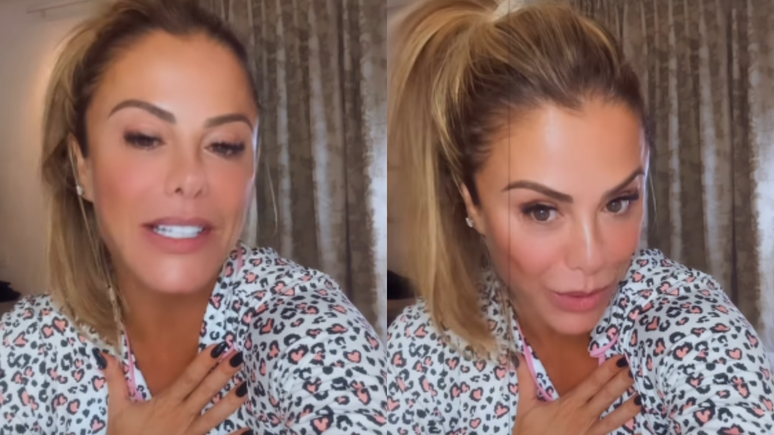First lady Rosângela da Silva, known as Janja, once again defended, on Tuesday the 19th, the regulation of social networks after being hacked earlier this month. Alongside President Luiz Inácio Lula da Silva (PT) on the program Conversa com o Presidente – a weekly live broadcast from the head of the executive – Janja said that it is necessary to discuss the monetization of big technologies and that platforms are “not beyond above the law.” The fake news law currently before the national Congress addresses the issue, but does not make holding companies responsible for hacking personal accounts, according to experts interviewed by the Estadao.
“We not only need to regularize the networks, but we need to discuss the monetization of these social networks. Because today it doesn’t matter if it’s good or bad, they make money, that’s fine. Social networks today are above the rules, above the famous market, they are loitering there,” the first lady said.
As the first lady has been the target of attacks on social media and her profiles have been hacked, government deputies and senators have begun to pressure the legislative chambers to pass PL 2630, known as PL das Fake News, which provides new social media guidelines. in relation to the dissemination of news, dissemination of false content and promotion of election propaganda and political content.
The project has been on hold since May. Since then, there has been no pressure from government officials to speed up processing and the proposal has not made it onto the executive’s priority list. The presidential base resumed the debate only after the hacker attack on the first lady’s profile on the social network.
According to FGV Direito Rio professor Nicolo Zingales, cases of hacking of profiles, accounts and devices are covered by the Carolina Dieckmann law, which provides for the responsibility of the attacker. According to Zingales, however, there is no liability for intermediaries, in the case of Janja of big tech.
“As regards liability for acts of computer piracy, we have the Carolina Dieckmann law, which introduced an article into the penal code that provides for the liability of those who have access to other people’s IT devices. This also includes any space that is used to store data personal and social profiles, like X”, explains the professor.
According to him, however, the law does not provide for the responsibility of the platforms.
“However, this law does not provide for the liability of intermediaries, such as large technology companies. This would be regulated by the Consumer Law, which provides that the minimum security duty must be guaranteed by service providers. There is debate about the scope of the civil Marco law of the Internet, which provides that providers cannot be held liable without a court decision requiring the removal of certain content. The legislation talks about content. Here we are talking about invasion, which would not be the case”, he explains.
Marcela Joelsons, partner in the Data Protection area at Souto Correa Advogados, explains that the Fake News Bill aims to combat the spread of disinformation, but there is still a need to deepen the debate on freedom of expression, privacy and regulation of the Internet.
“The Fake News PL aims to counter the spread of disinformation and fake news online. Its approval may have implications for the protection of users, especially regarding transparency on digital platforms, user identification and the fight against disinformation However, it is important to note that the legislation is complex and involves debates on freedom of expression, privacy and regulation of the Internet. There are those who argue that without the Marco Civil protection parameters from the Internet and with the new threats of fines , companies would be incentivized to remove legitimate speech, resulting in excessive blocking and a new form of censorship,” he explains.
According to Marcela Joelsons, in the event of an invasion of Janja’s profiles, the platforms could be held responsible for content generated by third parties.
“In cases such as account attacks, such as the one suffered by First Lady da Silva, where a crime is still considered a crime under Brazilian law, the social network would be liable for damages resulting from third-party content only if there were was a breach of duty of care and diligence, and after establishing a safety protocol procedure,” he says.
Source: Terra
Rose James is a Gossipify movie and series reviewer known for her in-depth analysis and unique perspective on the latest releases. With a background in film studies, she provides engaging and informative reviews, and keeps readers up to date with industry trends and emerging talents.


![Tomorrow we belong to: What awaits you in the 1947 episode, on Tuesday, May 20, 2025 [SPOILERS] Tomorrow we belong to: What awaits you in the 1947 episode, on Tuesday, May 20, 2025 [SPOILERS]](https://fr.web.img2.acsta.net/img/fb/32/fb325882973cff5c46d974b85fdcb96c.jpg)



